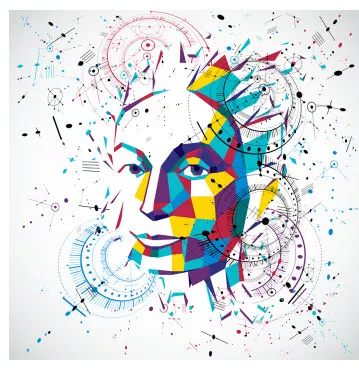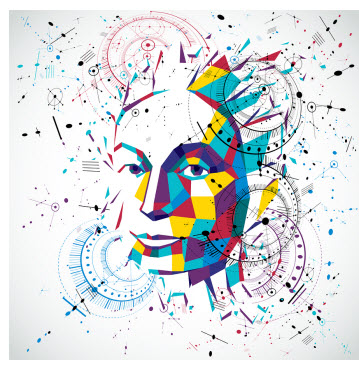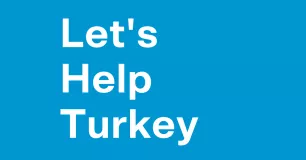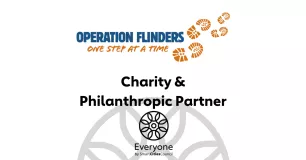
A Forbes piece touts the top 10 hot artificial intelligence technologies and the race to capitalize on the exploding AI market. Wired reveals AI is about to conquer poker. There are even reports that NASA wants to use drones and AI to search for life in alien oceans. But the good news is, after you cut through all of the noise, you find there's also potential for artificial intelligence to improve lives and the social good. See some examples below. – Liz Enbysk
Some big names in tech have contributed to a $27 million fund that will support developers and behavioral scientists trying to make artificial intelligence socially conscious.
The Ethics and Governance of Artificial Intelligence Fund led by MIT's Media Lab and Harvard's Center for Internet & Society was funded by LinkedIn founder Reid Hoffman, an investment firm started by eBay founder Pierre Omidyar and the Knight Foundation.
According to Nextgov.com, the idea is to "harness artificial intelligence for the public interest" and to ensure AI is influenced by philosophers, ethicists and social scientists – not just engineers.
MIT Media Lab Director Joi Ito said in the Nextgov piece that a critical challenge with AI is to "make sure that the machines we ‘train’ don’t perpetuate and amplify the same human biases that plague society."
Helping humanity
Meanwhile on the West Coast, two universities announced efforts to explore how AI can help humanity. The Los Angeles Times reported that USC’s Viterbi School of Engineering and its School of Social Work joined forces to launch the Center on Artificial Intelligence for Social Solutions and at UC Berkeley the Center for Human-Compatible Artificial Intelligence was unveiled.
Social work scientist Eric Rice of the USC center noted the potential for AI in a host of contexts -- from the impact of global warming on impoverished communities to issues with the child welfare system, homelessness and healthcare access.
Here's a closer look at some real-world applications.
Mental health
Nearly 20% of individuals in the U.S. alone will experience a mental health condition sometime in their life – ranging from the neurological (Huntington’s, Alzheimer’s, Parkinson’s, etc) to mental (depression or psychosis), writes Guillermo Cecchi of IBM's research staff.
But he says that if computational biology, analytics and machine learning could build tools to quickly and simply analyze language and predict the onset of these diseases, it would allow for earlier intervention, better allocation of resources or better treatment planning.
Writes Cecchi:
"In a study with Columbia University psychiatrists, we were able to predict, with 100% accuracy, who among a population of at-risk adolescents would develop their first episode of psychosis within two years. In other research with our Pfizer colleagues, we’re using only about one minute of speech from Parkinson’s patients to better track, predict and monitor the disease. We’re already seeing results of nearly 80% accuracy. In five years, we hope to advance the study of using words as windows into our mental health."
Hyperimaging
IBM scientists are also working on new imaging devices that use hyperimaging technology and artificial intelligence to provide what it calls "superhero vision" in a platform that could potentially enable a variety of practical and affordable devices and applications.
"Embedded in our phones," IBM suggests, "these same technologies could take images of our food to show its nutritional value or whether it’s safe to eat. A hyperimage of a pharmaceutical drug or a bank check could tell us what’s fraudulent and what’s not. What was once beyond human perception will come into view."
Education
A recent report from the Christensen Institute, a nonprofit, nonpartisan think tank, looked at the role of artificial intelligence in the classroom. Dismissing the fear by some that machines will replace teachers, the report suggests machines can help overcome barriers that prevent every teacher from reaching every child.
From the report:
 "School systems face a number of challenges, including teacher shortages, a lack of clear methods for developing high-quality teachers, and teacher burnout and attrition, to name a few. And even the best teachers struggle to address the diverse learning needs of their students or find time to focus on developing students’ deeper learning and non-cognitive skills amidst pressures to cover core instruction."
"School systems face a number of challenges, including teacher shortages, a lack of clear methods for developing high-quality teachers, and teacher burnout and attrition, to name a few. And even the best teachers struggle to address the diverse learning needs of their students or find time to focus on developing students’ deeper learning and non-cognitive skills amidst pressures to cover core instruction."
Innovations that commoditize teacher expertise by simplifying and automating basic teaching tasks, the report goes on to suggest, provide school leaders with new options for addressing three challenging circumstances:
- When schools lack expert teachers
- When expert teachers must tackle an array of student needs
- When expert teachers need to teach more than academic content
Other research has suggested that artificial intelligence could contribute to improved education outcomes using virtual mentors for every student, helping teachers customize instruction for every student, enabling global classrooms and taking learning outside the classroom and into the learner's life.
#CCEOST#



